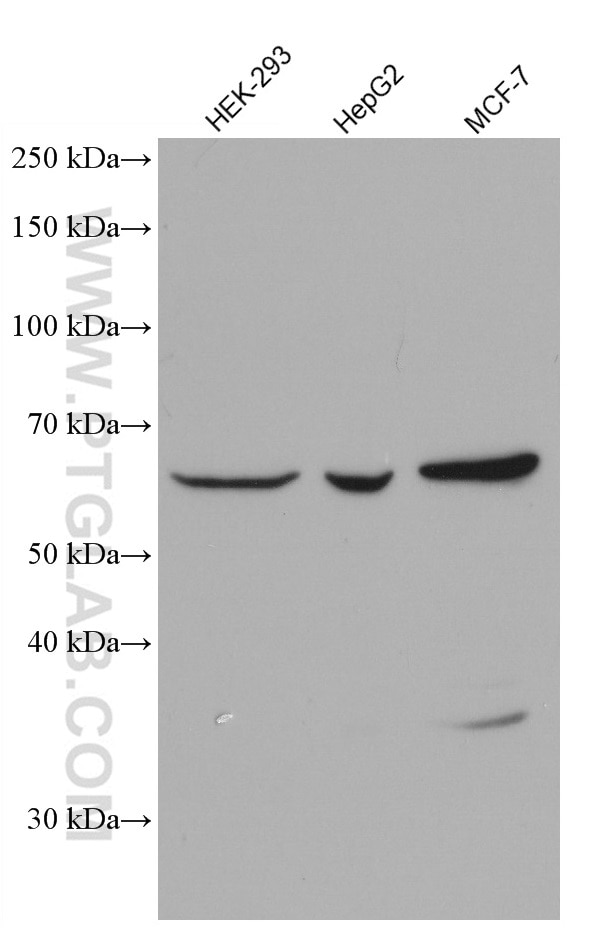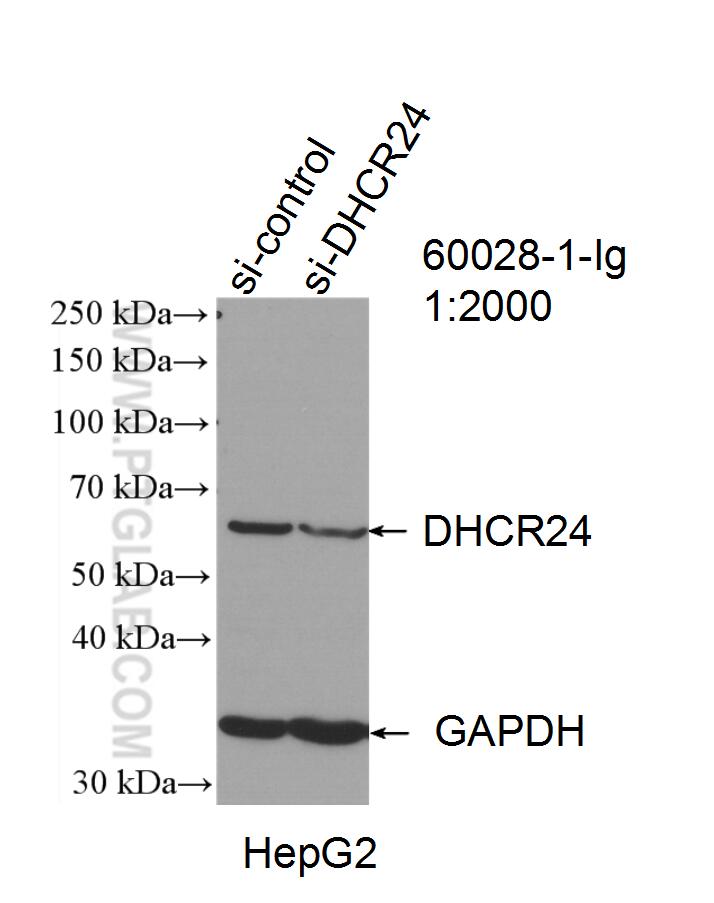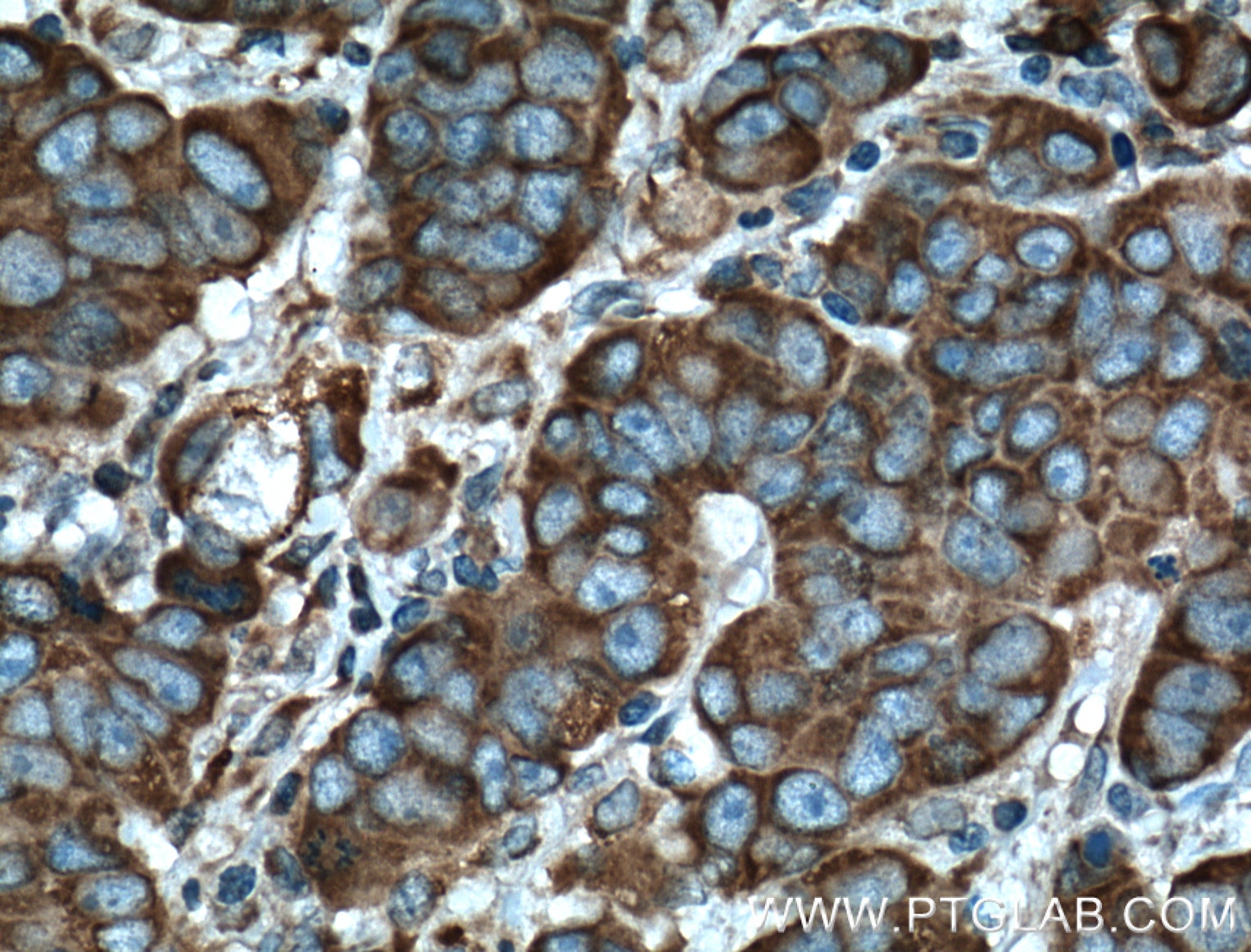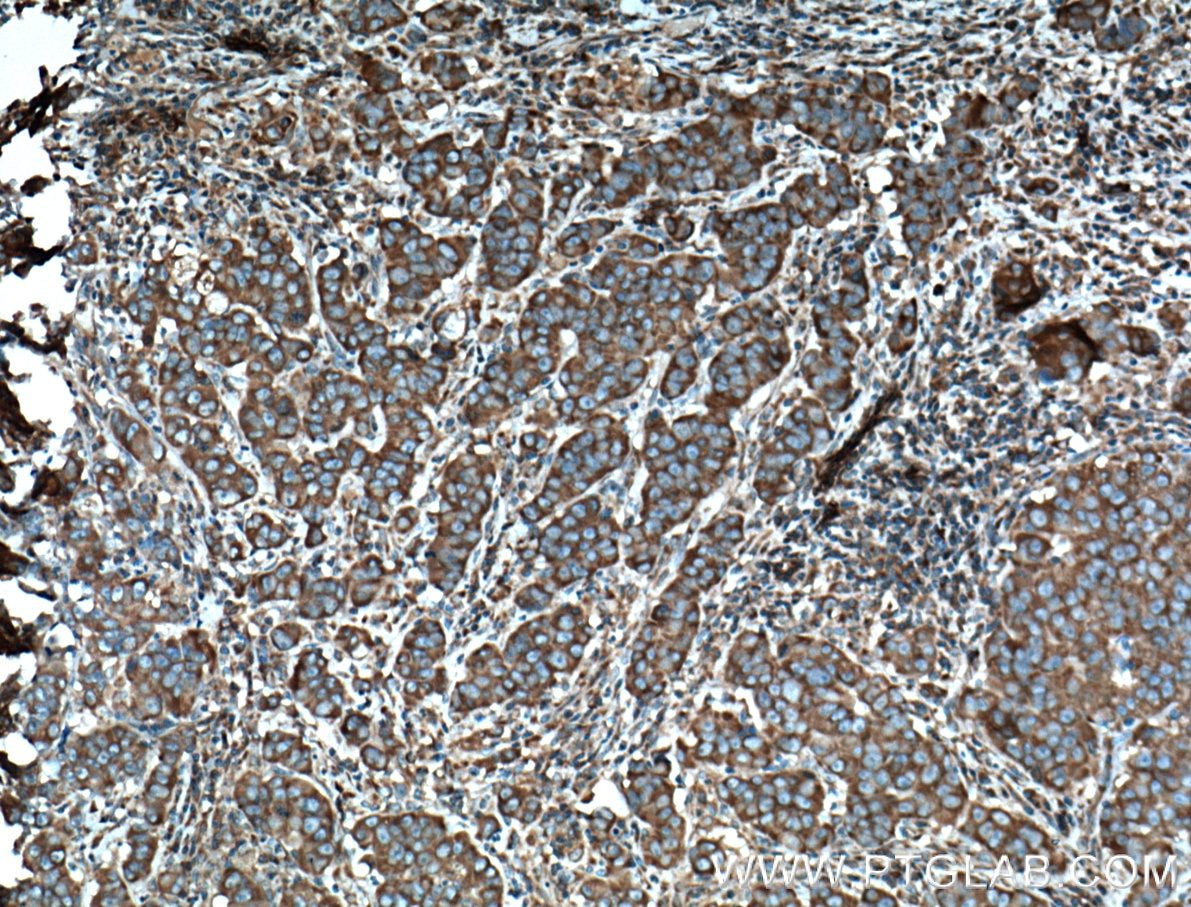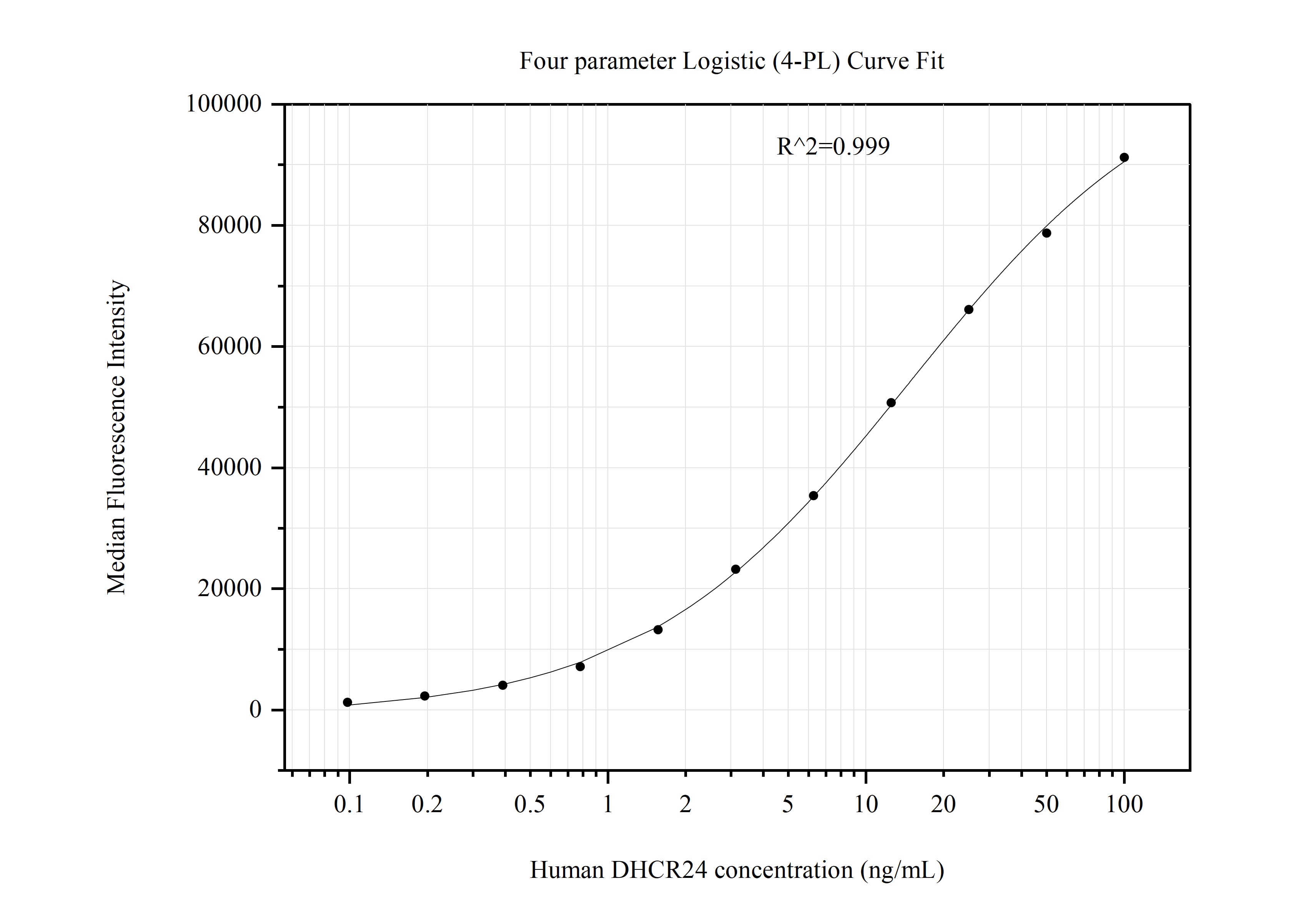Validation Data Gallery
Tested Applications
Recommended dilution
| Application | Dilution |
|---|---|
| It is recommended that this reagent should be titrated in each testing system to obtain optimal results. | |
Product Information
60028-1-PBS targets DHCR24 as part of a matched antibody pair:
MP51020-1: 60028-2-PBS capture and 60028-1-PBS detection (validated in Cytometric bead array)
Unconjugated mouse monoclonal antibody pair in PBS only (BSA and azide free) storage buffer at a concentration of 1 mg/mL, ready for conjugation.
This conjugation ready format makes antibodies ideal for use in many applications including: ELISAs, multiplex assays requiring matched pairs, mass cytometry, and multiplex imaging applications.Antibody use should be optimized by the end user for each application and assay.
| Tested Reactivity | human |
| Host / Isotype | Mouse / IgG1 |
| Class | Monoclonal |
| Type | Antibody |
| Immunogen | DHCR24 fusion protein Ag0756 相同性解析による交差性が予測される生物種 |
| Full Name | 24-dehydrocholesterol reductase |
| Calculated molecular weight | 60 kDa, 516 aa |
| Observed molecular weight | 60 kDa |
| GenBank accession number | BC004375 |
| Gene Symbol | DHCR24 |
| Gene ID (NCBI) | 1718 |
| RRID | AB_874115 |
| Conjugate | Unconjugated |
| Form | Liquid |
| Purification Method | Protein G purification |
| UNIPROT ID | Q15392 |
| Storage Buffer | PBS only , pH 7.3 |
| Storage Conditions | Store at -80°C. |
Background Information
DHCR24(3-beta-hydroxysterol delta-24-reductase), also named as Seladin-1 or Diminuto/dwarf1 homolog, is a member of the flavin adenine dinucleotide (FAD)-dependent oxidoreductases, and catalyzes the reduction of the delta-24 double bond of sterol intermediates during cholesterol biosynthesis. The dhcr24 expression was shown to be down regulated in brain areas affected by Alzheimer's disease and endogenous DHCR24/seladin-1 levels are highly up-regulated upon acute oxidative stress while expression declines to very low levels upon chronic exposure (PMID:17984220). In apoptotic cells, endogenous seladin-1 was cleaved to a 40 kDa derivative in a caspase-dependent manner (PMID: 11007892).
